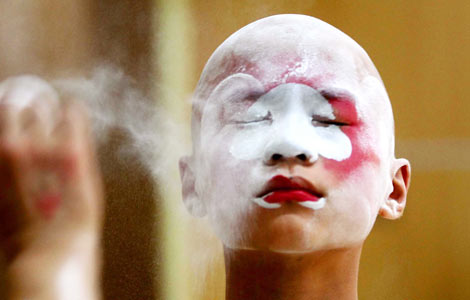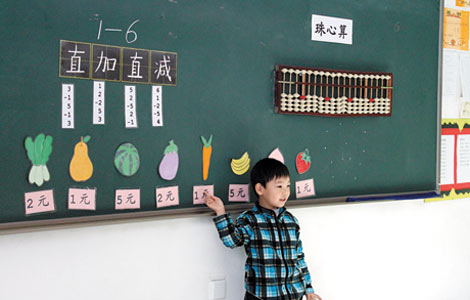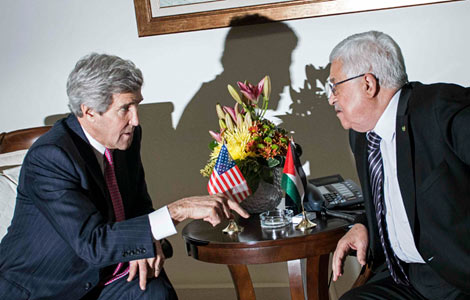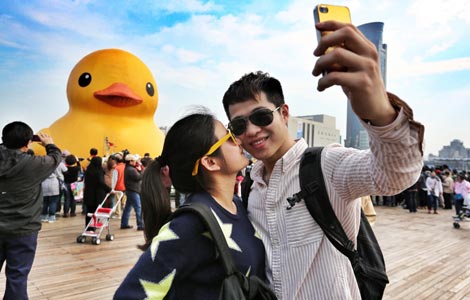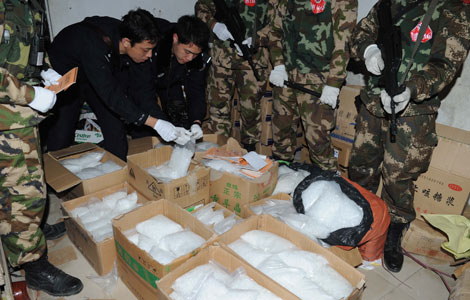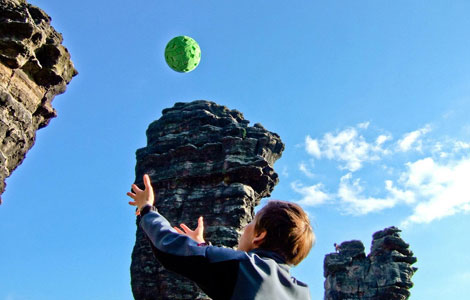Culture that counts
Updated: 2014-01-05 00:02
(China Daily)
|
|||||||||
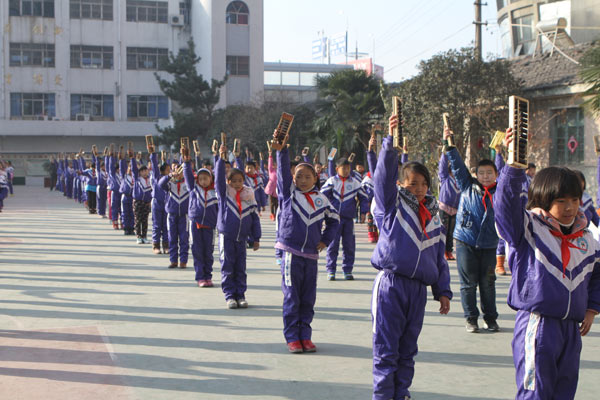 |
|
Hefei Shilimiao Primary School students start mornings with a special regimen performed with abacuses. Provided to China Daily |
Anhui province's Hefei Shilimiao Primary School is the only school in the provincial capital with abacus lessons.
It offered the course as an extracurricular class from 1995 until it became required from grades 1 to 4, who can also take additional extracurricular abacus classes, in 2009.
Students start mornings with a special regimen the school developed in which they hold their abacuses while performing fitness routines.
They also learn to do "mental abacus arithmetic", in which they visualize an abacus executing calculations in their mind's eye.
Headmaster Li Yanhao says first-grade students who take the extracurricular class can perform incredible arithmetic on the device. He claims some can add and subtract a dozen three-digit, round numbers.
Li is glad UNESCO inscribed the abacus.
"We should preserve our tradition," he says. "It's good for mathematics. And it doesn't affect other classes."
Yet while extolling the abacus' virtues and use in their school's curriculum, Li and Liu are reserved about the view the UNESCO proclamation should spur the re-introduction of abacus classes in all primary schools.
"The calculator rendered it obsolete," Liu says. "We should inherit culture but not make tradition the core."
The abacus' pedagogical efficacy extends to special education in China.
Dongli Fengmei Kangjian School has more than 200 intermediately or severely developmentally challenged students ages 7-16, who study the device. The school offers nine-year compulsory education for children with learning disabilities. Shanghai's Xuhui district government founded the school in 1994.
It was initially difficult for the school to offer math courses because there were no appropriate textbooks and few resources.
The school began cooperating with the Shanghai Abacus and Mental Arithmetic Association after the association began researching abacus lessons' impacts in 1997.
"We use abacuses all the time to teach math," says Yang Jian, head of the mathematics instruction and research group. "The abacus is a kid's best friend."
She says it's helpful for autistic children, who like patterns and can't comprehend complicated instructions. The abacus operates according to simple and clear procedures. Its formulas are pithy and systematic. Autistic kids are sensitive to auditory stimulation, so the beads' clacks fascinate them.
Yang says children with Down syndrome like to imitate others, including those who use abacuses. Repeating formulas with teachers also enhances their speaking.
The abacus proves difficult for such children, who can only perform very simple calculations. But the course focuses on teaching them greater independence, Yang says.
"Parents worry that it's difficult for their kids to learn to calculate," she says.
"The abacus helps them learn math fast. We have a lot of time to teach them how to use calculations in real life."
Teachers use abacuses to teach students to identify the yuan's nominal values, and determine and compare prices.
They also take students to markets to shop and to dine in a restaurant, so they can put what they've learned into practice.
Wang Hai says the abacus has done wonders for her 9-year-old daughter, who has Down syndrome.
"I taught my girl the numbers from 1 to 10 for two years, but she couldn't quite get it," says Wang, who works in the foreign trade sector in Shanghai.
"But she started making rapid progress since she began learning the abacus. She can even do some simple
calculations."
Qian Qing, a stay-at-home mom whose 11-year-old autistic son studies at the school, says the device helps kids like him better understand numbers and basic calculations.
She takes him to convenience stores every day, so he can buy his favorite snacks and pay on his own.
"We have to help children with special needs understand the rules of buying things, such as lining up," Qian says.
President of the China Abacus and Mental Arithmetic Association Ding Xianjue believes the abacus' World Intangible Cultural Heritage listing is a great opportunity to promote it.
The association will focus on the instruction of children and the combination of the abacus and mathematics.
Ultimately, the UNESCO listing may change the equation and add up to a greater number of people, especially contemporary youth, learning how to use "the world's oldest calculator".
Contact the writer at xulin@chinadaily.com.cn
Sun Li contributed to this story.
Most Viewed
Editor's Picks

|

|

|

|

|

|
Today's Top News
Kerry says progress in Mideast diplomacy
Suspect arrested in consulate arson
China's ambassador to US blasts Abe
Paper spotlights Xi's early work
Icebreaker likely free Monday
Xi requests safety of staff aboard icebreaker
Abe's coalition ally slams shrine visit
Kim's speech draws skepticism from ROK
US Weekly

|

|


